This episode focuses on what people can do to keep themselves mentally well during tough times, and how to support others.
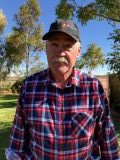 Richard Wilson is a grazier, originally from a South Australian farming family, moved to Western NSW approximately six years ago.
Richard Wilson is a grazier, originally from a South Australian farming family, moved to Western NSW approximately six years ago.
At the age of 21, Richards’s father was handed the family farm which he ran until he was 60 years old. Richard’s son followed his own dream and announced that he would like to buy a property in Western NSW. Before he knew what had happened they had bought it even before they had sold the property in South Australia. It was stressful but well worth the risk. Richard and his wife were adamant that they wanted to support their son in his decision. Despite droughts and sometimes challenging times, this is something they have not regretted and they have enjoyed being part of a connected community and culture.
After a chance conversation with another man about mental health, Richard realised he could see a lot of the same issues in his own life. After talking to his General Practitioner (GP), Richard received support for his depression. He now shares his story with other men, encouraging them to seek help if they themselves identify with experiences from his story.
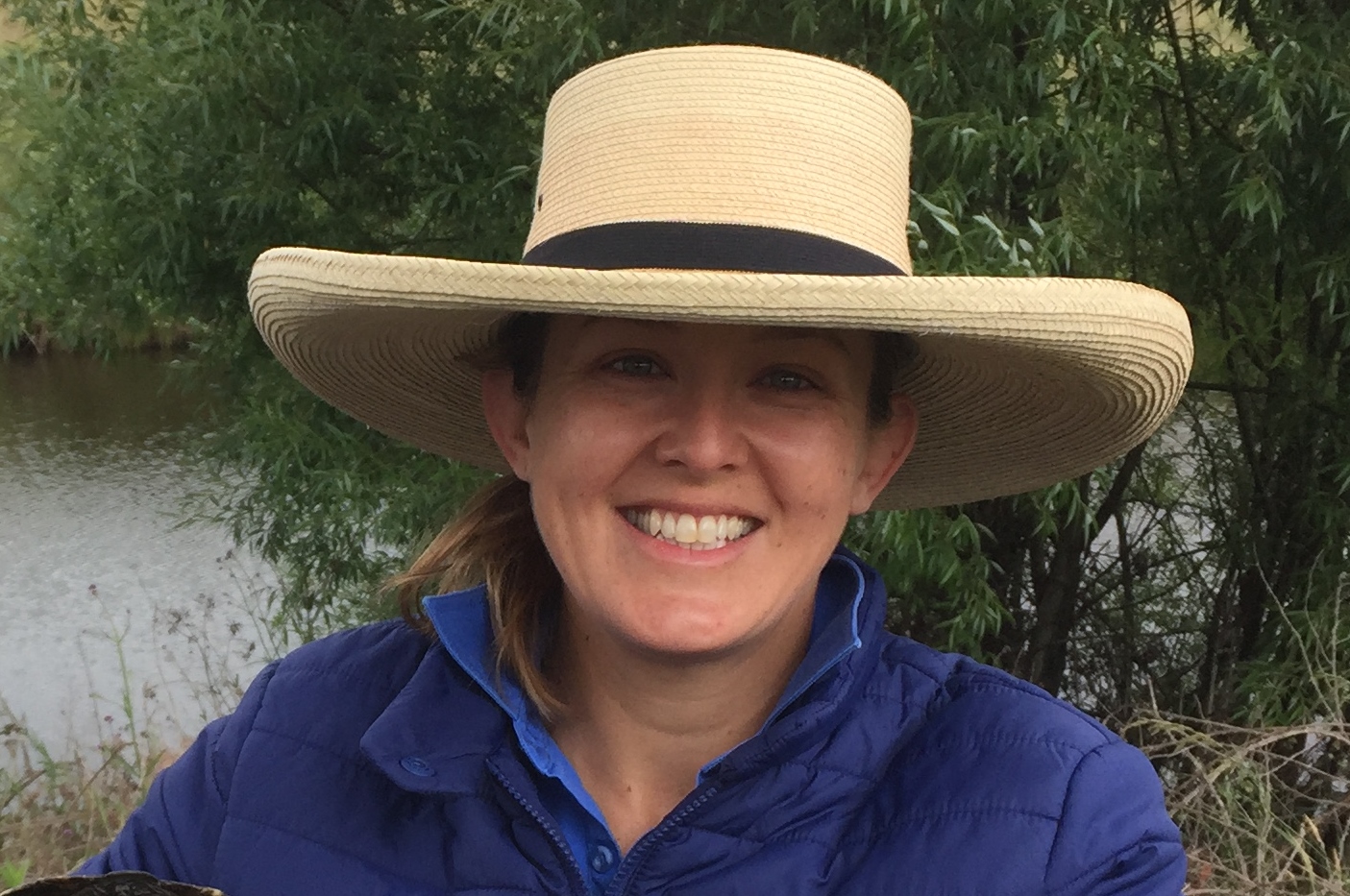
Sally Balmain joined the North West Local Land Services (NWLLS) Ag Advisory team in 2015 with a livestock focused role. Sally now splits her time working out of both the Tamworth and Warialda offices while living in the Barraba region with her husband, on his family’s beef property. Prior to joining the NW LLS, Sally worked in the animal health field, and in ruminant nutrition. She began her career with a Bachelor of Systems Agriculture at the University of Western Sydney, Hawkesbury, completing postgraduate studies at the University of New England (UNE).
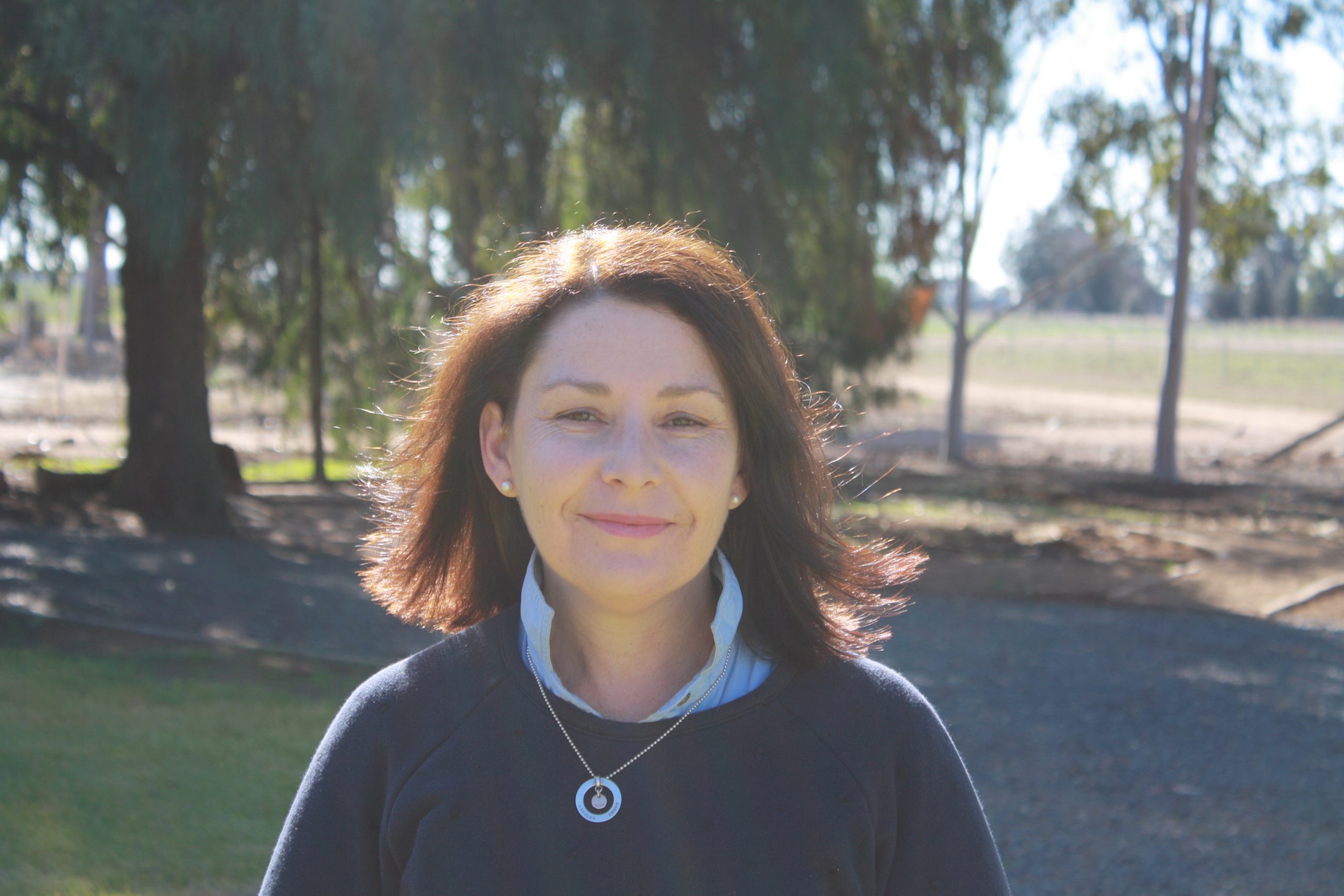 Lisa Minogue is a farmer from Barmedman in Central West NSW. Lisa farms alongside her husband John, they have two teenage sons, Lachlan and Conor.
Lisa Minogue is a farmer from Barmedman in Central West NSW. Lisa farms alongside her husband John, they have two teenage sons, Lachlan and Conor.
Lisa and John operate a dryland mixed farming and grazing property growing winter cereal and oilseed crops. They also run merino sheep and Angus beef cattle.
Lisa worked as a Rural Financial Counsellor in her local community during the millennium drought and is now a board member on both the Veterinary Practitioners Board of NSW and on the NSW Farmers Association. She is also an Executive Councillor on the Rural Affairs Committee.
Resources
Disasters can strike at any time from accidents to natural disasters. We can find our mental health pushed and tested in many ways. In this podcast we share tips around keeping yourself and those around your mentally well during tough times.
Our Fact Sheet: Let’s Talk Managing Stress During Drought provides a quick reference of what signs to look out for that someone is stressed, how to support someone who is not coping, and includes useful phone numbers for services that can help you.
This ‘How Are You Going’ poster is another useful resource to help you check-in with your wellbeing.
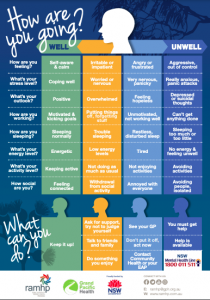
Podcast: In Let’s Talk Rural Mental Health – Series 1, we spoke to Di Gill; farmers from Western NSW Phil & Chris Munge, and Clinical Psychologist Dr Rob Gordon about Disasters, trauma and mental health. You can listen to this podcast here.
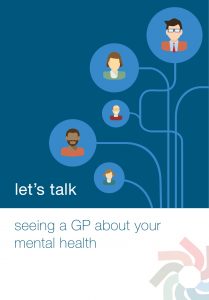 During tough times your General Practitioner (GP) can be the most important person to talk to if you are struggling with your mental health. While the stigma around mental health is improving, wanting to be resilient in times of distress can stop us all from reaching out for help.
During tough times your General Practitioner (GP) can be the most important person to talk to if you are struggling with your mental health. While the stigma around mental health is improving, wanting to be resilient in times of distress can stop us all from reaching out for help.
Listen to our podcast and check out our Seeing Your GP (312 KB) about your mental health.
Check out this video where expert phsychologist Dr. Rob Gordon shares his knowledge on what people experience when they face a natural disaster
CRANAplus Bush Support Services: 1800 805 391
The challenges that face Remote Health Workers in their day to day lives (both at work and just by living remotely) are different than those living with the support found in larger regional and urban areas. CRANAplus’ Bush Support Services recognises this and offers unique and helpful resources that draw on its vast network and specialised knowledge. CRANAplus sees Bush Support Services as vital in retaining a healthy and resilient workforce in the remote sector and makes health worker support a priority.
Through Bush Support Services, CRANAplus is able to provide 24/7 personalised care for remote health workers and their families.
You don’t have to be a Member to utilise this service.
CRANAplus qualified psychologists are experienced in the remote sector and know first-hand, the best resources for those with unique support needs. They have an understanding that the particular mental health of both Indigenous and non-Indigenous remote health workers is a result of the unique nature of remote work.
It’s free and it’s confidential. You can also remain anonymous at all times, if you wish. Calls from mobile phones to the Bush Support Services (1800 805 391) Toll Free Number can be returned at the caller’s request.
Help services
If you or someone else is in immediate danger, call 000 or go to your nearest hospital emergency department.
If you’re concerned about your own or someone else’s mental health, you can call the NSW Mental Health Line 1800 011 511 for advice.
Having a tough time and need someone to talk to right now? The following services are here to help. They are confidential and available 24/7.
- Lifeline – 13 11 14
- Men’s Line Australia– 1300 78 99 78
- Kids Help Line – counselling and support provided for young people (to 24 years old) who are feeling depressed, sad, or lonely – or just need someone to talk to – 1800 55 1800
- Domestic Violence Line – 1800 656 463
- Suicide Call Back Service– 1300 659 467
